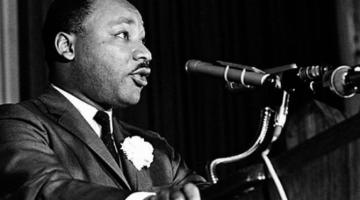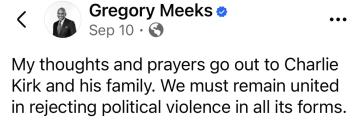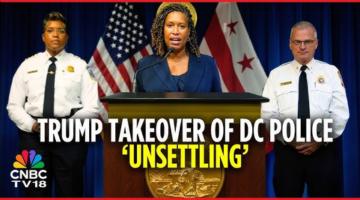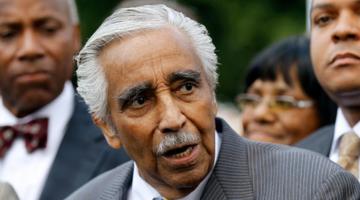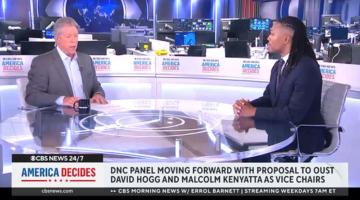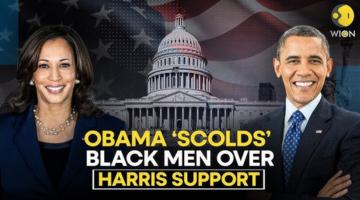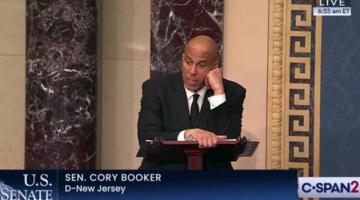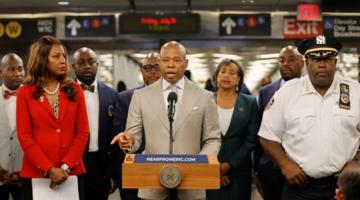Rev. Jesse L. Jackson and Congressman Bobby Rush (D-IL)
Earlier this month, Chicago journalist Curtis Black called the office of Congressman Bobby Rush (D- IL) to ask what the congressman’s position on net neutrality was, now that Donald Trump is president. During his two decades in Congress Rush has taken quite a lot of cash from the bagmen of ATT, Verizon, Comcast and the rest. He’s not alone. Since 2006, Black Agenda Report has covered how the black political class have consistently served the interests of Big Cable and telecoms over those of their supposed constituencies.
Only 25 and 30 years ago most corporate donors did not bother to bribe… I mean contribute, to black and Latino politicians. Telecommunications corporations were among the few reliable contributors to the campaigns of black and brown legislators on the state and federal level. They also gave generously to LULAC to the NAACP, Urban League Operation PUSH, the predecessor of today’s Rainbow PUSH Coalition and to similar groups across the country. The early investment of telecom funding in the rising black political class has since paid off many, many times over.
Back in 2006, when Glen Ford, Margaret Kimberley and I were still at the Black Commentator we assisted our colleague Leutisha Stills with the research for her article CBC Monitor: Bobby Rush, AT&T’s Million Dollar Man in which Congressman Rush and the discredited former Rep. Harold Ford out of Memphis TN enlisted as Democratic co-sponsors of a legislative atrocity called the COPE Act, which as the linked article explains, would have scuttled network neutrality way back then, allowing internet access providers to speed up, slow down or deny access to any content for any reason. But it didn’t stop there. Cable networks are beneath the publicly owned roads and streets which are maintained by local governments. In return for using the public right of way, organized citizens had forced cable companies to extend service to poorer areas, to set aside channels and production facilities for educational and public use and other important concessions. Rush’s COPE Act would have done away with that, nullifying all county and municipal cable licensing, franchise and regulation agreements, and replacing them with a federal licensing body inaccessible to citizens but easy for the cable companies to influence and control. That heinous legislation passed the House of Representatives with the support of two thirds of the Congressional Black Caucus. Fortunately it died in the US Senate.
Their power play thwarted at the federal level telecoms next turned to state capitals where there was even less reporting, less public scrutiny. In a March 2007 article Black Agenda Report described how they made it rain dollars on the National Caucus of Black State Legislators, turning that organization into the vehicle for pushing the rollback of local cable regulations, prohibitions on municipally owned cable and broadband networks and the digital redlining of poorer urban and rural communities.
In 2009 neither the Congressional Black Caucus, the major civil rights organizations, or the Department of Justice under a black attorney general and a black president opposed the merger of Comcast, the nation's biggest internet access provider with almost half the cable market, with NBC-Universal one of the biggest producers of the content that flowed over networks.
In 2010 Black Agenda Report explained how the Congressional Black Caucus Foundation, the National Caucus of Black State Legislators, the NAACP, PUSH, LULAC, the Urban League and similar outfits all had “corporate advisory boards” upon which corporations could buy seats from which to issue public policy statements over the letterhead of sponsoring organizations, thus enabling corporate voices to speak for black and brown communities on network neutrality and a wide range of other issues. Later that year we pointed the finger at TheRoot.Com and former Atlanta mayor Shirley Franklin for shilling for the telecoms.
In September and again in November 2010 we applauded the efforts of our friends at ColorOfChange.Org who named and shamed members of the Congressional Black Caucus over network neutrality, singling out Congressman Bobby Rush for being on the board of a charity which had received a seven figure donation of telecom money.
In April of 2014 Black Agenda Report revealed that the National Action Network, the NAACP, and other hypocritical civil rights organizations had filed papers with the FCC claiming they had a “constitutional right” to conceal the fact that they were awash in telecom contributions whenever they weighed in with the FCC on policy matters affecting the minority communities they supposedly “represented.”
In June 2014 Black Agenda Report drew attention to other reporting which revealed in some detail how the corruption of the black political class had become endemic and institutional, with former congressional staffers and their bosses becoming corporate lobbyists, just like their white colleagues, but able to leverage the unique legitimacy arising from their alleged “representation” of black America for their corporate clients in military contracting, for Big Ag, Big Pharma, Big Real Estate, Big Telecoms, for the charter school sugar daddies, and more. In August of that same year we recounted a joint appearance of black former staffers and a congressman, all turned lobbyists on TV One who insisted that corruption and corporate allegiance on their part was normal, correct and the way of the world. Also in August 2014, no less a figure of the black political class than the Rev. Jesse L. Jackson himself saw fit to express his disappointment and hurt at our charges that the so-called civil rights leadership had sold out to corporate interests. We answered him.
The First Black President ignored his own promises to stand up for network neutrality (and many other promises!) the first two years in the White House, when he actually had a congressional majority. In his final two years he appointed an FCC chair who passed a net neutrality decree. President Trump’s FCC chair nullified it with the stroke of another pen.
In the spirit of “the resistance” black political hacks and stooges who carried putrid telecom water for decades are recasting themselves as stalwart fighters for the free internet. Rev. Jesse Jackson now supports the free and open internet. And according to Chicago journalist Curtis Black, the communications person at Bobby Rush’s office now says that the congressman now “supports net neutrality and is disappointed by FCC's attempt to undermine it,” and also favors classifying broadband internet as a Title II common carrier service.
Go figure. Now that Trump is in the White House we’re all supposed to be on the same side. Yeah. Right.
An afterthought: black misleaders vs the black political class.
We at Black Agenda Report used to call people like Rush and Jackson part of the black misleadership class. I now have deep reservations about that term, because it implies that there is or ought to be a class of good and righteous black leaders. I now believe this formulation is sloppy and imprecise because it doesn’t tell us what makes the one bunch better than the other… it merely divides them into the good and the bad black leaders. Maybe the good ones are supposed to be the “real” blacks and the bad ones unreal. Maybe the difference having or lacking character, table manners, home training or “real” blackness, or even some kind of black magic.
The problem is that nobody can define that kind of “blackness” really, without dipping into race genetics or magic or something else inapplicable.
I think it’s more accurate to describe Rev. Jackson, Congressman Rush, NAN, the CBC and the rest as members of a black political class. Their defining characteristic then, is not their authentic or inauthentic blackness. It’s a class allegiance. And it happens to be a class to which most of us don’t belong. But we can belong, a relative few of us, if we’re cultivated, called and chosen. After all a black man was just president for eight years, wasn’t he? Did he have or lack magical qualities of authentic blackness? Or did he have a specific class allegiance, one that is definitely not ours?
For the black political class, blackness is just a protective coloration. It’s a brand, and brands are not real in the same way that political movements, and economic classes are.
Here is the list of Black Agenda Report articles on the black political class and internet neutrality linked to above. It is not the complete list, there are actually at least half a dozen more by various authors including several by our own Margaret Kimberley, and other authors. We are re-indexing our site to provide ready links and easier access to all of them.
Bruce A. Dixon is managing editor at Black Agenda Report and co-chair of the GA Green Party. He lives and works near Marietta GA and can be reached via email at bruce.dixon(at)blackagendareport.com.

